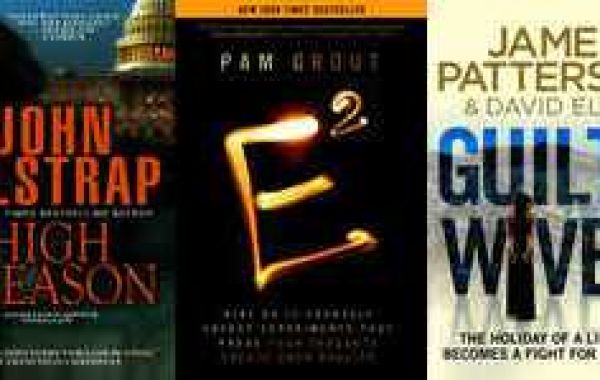The Lord, the Psalmist’s Shepherd (Bonus Page)
A Psalm of David (Have everyone in your family learn this).
23 The Lord is my shepherd,
I shall not want.
2 He makes me lie down in green pastures;
He leads me beside quiet waters.
3 He restores my soul;
He guides me in the paths of righteousness
For His name’s sake.
4 Even though I walk through the valley of the shadow of death,
I fear no evil, for You are with me;
Your rod and Your staff, they comfort me.
5 You prepare a table before me in the presence of my enemies;
You have anointed my head with oil;
My cup overflows.
6 Surely goodness and loving-kindness will follow me all the days of my life,
And I will dwell in the house of the Lord forever.
BRAIN HEALTH, GROWTH, AND LONGEVITY PRACTICES
After 2 weeks you should be able to do this from memory. This will compound the effective growth of your brain neuron pathways while connecting more parts of your brain lobes. Also, reflect on this verse: “The word is near you” - in your mouth and in your heart that is, the word of faith which we are preaching, Rom 10:8. After 2 weeks not only will His word be near you and in your mouth but also you will be speaking from your heart such that you will be truly preaching Gods loving word from your heart.
Then do these additional brain BLUR booster exercises:
- Yawn through it – as you say each word sigh or yawn (a type of power breathing),
- Groan deeply, mimic the HS – Rom. 8:26 “...we do not know how to pray as we should, but the Spirit Himself intercedes for us with groanings too deep for words”,
- Start with the last verse first going back each verse finishing with the first verse,
- Sing through it.
- Say each word slowly without letting your brain judge any word and not let your brain chatter needless or at all so that the brain can be calmed and any toxic thoughts can be released - this let Word of our loving Lord sooth and flow through your brain creating health, wellness, and quietness.
The best practices are to do these exercises for four contiguous days. Remember, Paul was made blind by the Lord on the road to Damascus and remained so for about 4 days (Acts 9); I don’t know if this event is a true association but experiences of doing new verses or chapters seem to support the effectiveness of the practice. Also, it makes it easier to remember to do your exercises just as focusing on listening to a loving God boosts the physiological meditation results. This is a very uplifting verse for before or after grieving of a family member or friend – singing is an act of love plus brain BLUR boosting!
Neuroscience of rhythm
The neuroscience of rhythm refers to the various forms of rhythm generated by the acentral nervous system/a (CNS). Nerve cells, also known as a title="Link: null"neurons/a in the human brain are capable of firing in specific patterns which cause aoscillations/a. The brain possesses many different types of oscillators with different periods. Oscillators are simultaneously outputting frequencies from .02 Hz to 600 Hz. It is now well known that a computer is capable of running thousands of processes with just one high-frequency clock. Humans have many different clocks... Prior organisms had no need for a fast responding oscillator. This multi-clock system permits a quick response to constantly changing asensory input/a while still maintaining the autonomic processes that sustain life. This method modulates and controls almost all bodily functions.
Rapid changes in histone deacetylases and inflammatory gene expression in expert meditators
Abstract Snippet:
https://www.ncbi.nlm.nih.gov/pmc/articles/PMC4039194/pdf/nihms542085.pdf
BACKGROUND—A growing body of research shows that mindfulness meditation can alter neural, behavioral and biochemical processes. However, the mechanisms responsible for such clinically relevant effects remain elusive.
METHODS—Here we explored the impact of a day of intensive practice of mindfulness meditation inexperienced subjects (n= 19) on the expression of circadian, chromatin modulatory and inflammatory genes in peripheral blood mononuclear cells (PBMCs). In parallel, we analyzed a control group of subjects with no meditation experience who engaged in leisure activities in the same environment (n= 21). PBMCs from all participants were obtained before (t1) and after (t2) the intervention (t2-t1= 8 hours) and gene expression was analyzed using custom pathway focused quantitative-real time PCR assays. Both groups were also presented with the Trier Social Stress Test (TSST).
RESULTS—Core clock gene expression at baseline (t1) was similar between groups and their rhythmicity was not influenced in meditators by the intensive day of practice. Similarly, we found that all the epigenetic regulatory enzymes and inflammatory genes analyzed exhibited similar basal expression levels in the two groups. In contrast, after the brief intervention, we detected the reduced expression of histone deacetylase genes (HDAC2, 3 and 9), alterations in the global modification of histones (H4ac; H3K4me3) and decreased expression of pro-inflammatory genes (RIPK2 and COX2) in meditators compared with controls. We found that the expression of RIPK2 and HDAC2 genes was associated with a faster cortisol recovery to the TSST in both groups.
CONCLUSIONS—The regulation of HDACs and inflammatory pathways may represent some of the mechanisms underlying the therapeutic potential of mindfulness-based interventions. Our findings set the foundation for future studies to further assess meditation strategies for the treatment of chronic inflammatory conditions. Keywords mindfulness; meditation; epigenetics; inflammation; HDAC; stress
a#MBBf/a a#ShorelineM/amurray a#MindfulRenewal/a
Experiencing God – MBBf NeuroMeditation©Prayer for Brain Longevity, Growth Health Date12/10/2013
Copyright ©2012VisionIgniters@gmail.com - affiliates: Plan4Childhood Shoreline-Murray Mindful Renewl Institution DRAFT








